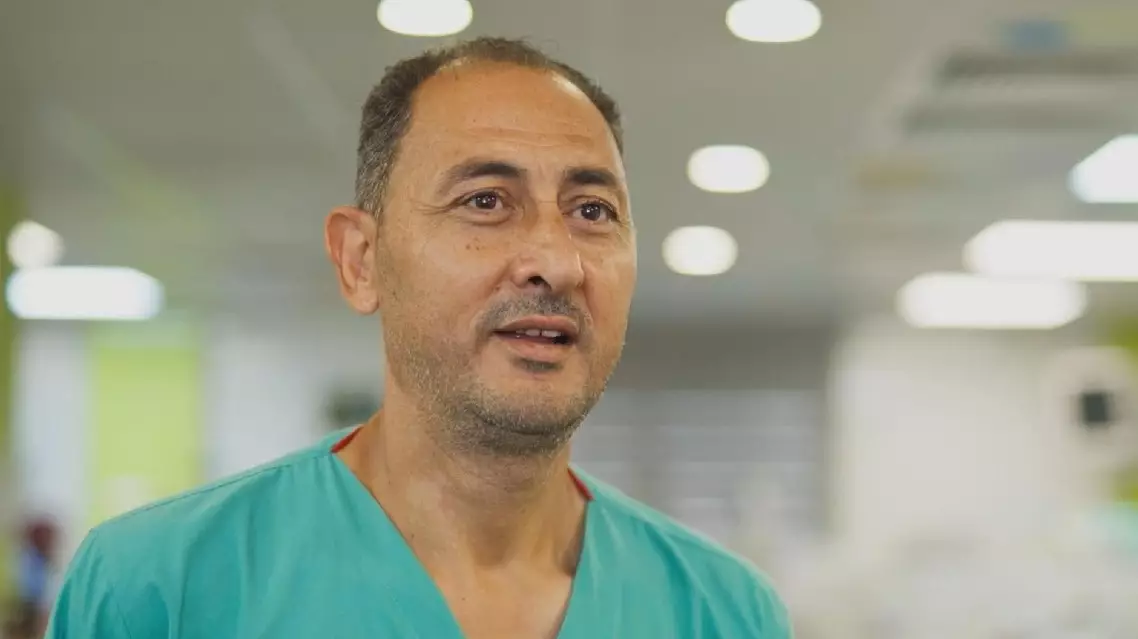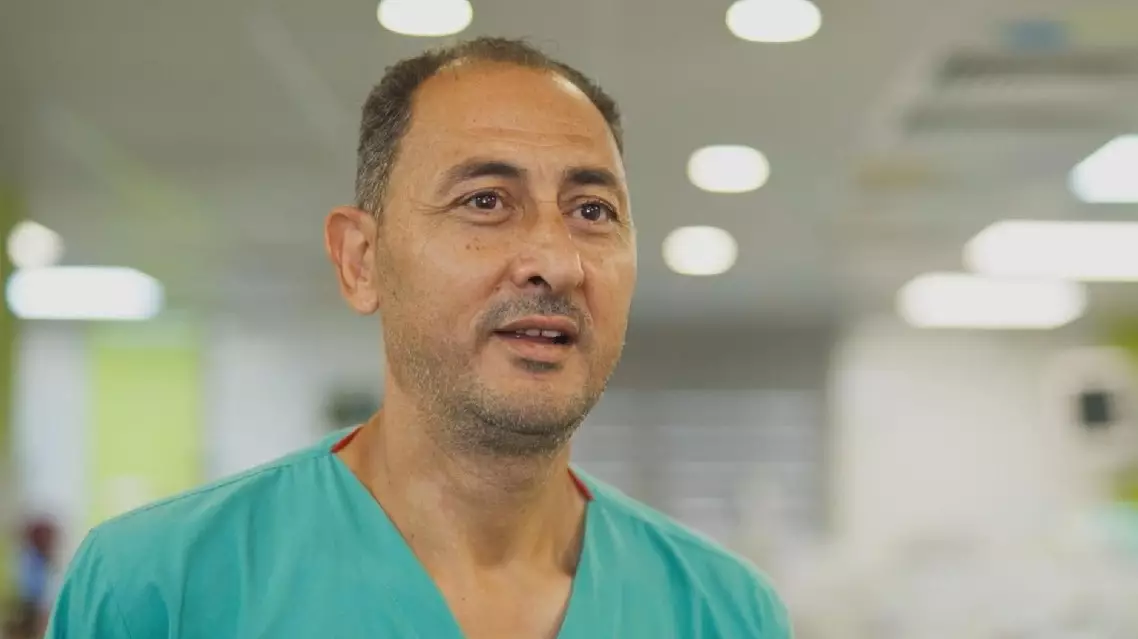A dedicated pediatrician is leading a team of healthcare professionals in a relentless effort to save the lives of newborn babies in the war-torn Gaza strip.
Despite the challenging and devastating conditions they are facing, Dr. Nasser Balbul, head of the Incubation Department, and his colleagues are unwavering in their commitment to providing critical care to the most vulnerable infants in the region.
Since last year, Dr. Balbul and his team have relocated multiple times, first from Al Shifa Medical Center, the largest medical complex in Gaza, to Nasser Hospital in Khan Younis in southern Gaza. However, their challenges only intensified after evacuating to the Nuseirat camp, where they faced dire conditions that severely impacted their ability to provide care for premature and critically ill babies.
"After losing our home, we were evacuated to the Nuseirat camp. At the end of May, we took a short break, and then we resumed our work at Nasser Hospital in Khan Younis. The hardest moment was leaving Al-Shifa Hospital. I remember being in a room without even the most basic facilities. We had 38 premature babies. It was cold, but we had no heating. There were power outages and the oxygen supply stopped working. We had no clean water or enough milk for the babies. Sadly, we lost some babies because the water was contaminated. The deaths of the children, due to a lack of clean water for preparing their milk, were a tragedy for the medical staff. There's nowhere else in the world that death occurs like it does in Gaza," he said.
The unprecedented tragedy has erased memories of peace, leaving little hope without international and Arab support to end the war and improve conditions for children, making it difficult to recover and move forward, said Balbul.
"We've not experienced a tragedy on this scale before. As for peace, we've actually forgotten what it is. There's no such thing as peace anymore. Allah willing, there's still hope the war will end, and we can continue our work and things will get better, and the children's situation will improve. But without international and Arab support, it'll be hard for us to get back on our feet," he said.
Among the infants Dr. Balbul and his colleagues have provided cared for is an orphaned baby girl named Malak, which means "Angel" in Arabic. Left without any family to claim her, Malak has found a temporary home with a nurse who has adopted her while efforts continue to locate her parents.
"Malak faces an uncertain future. A nurse has adopted her. We don't know if her parents are alive or if they were killed during the conflict. They'll try to find her mother and father. If they fail, the nurse will raise her. Of course, the future's uncertain for all the children who’ve lost their parents. They need urgent help now, as well as after the fighting ends. I visited Malak three weeks ago, and she was in good health. Thanks be to Allah, I checked on her," he said.
When talking about Malak, Dr. Balbul's demeanor brightens.
"Malak is a symbol of resilience. She's a symbol of patience and achievement. She's still alive, and healthy. This gives us the energy and patience to continue giving," he said.

Pediatrician fights to save newborns in war-torn Gaza

Pediatrician fights to save newborns in war-torn Gaza









